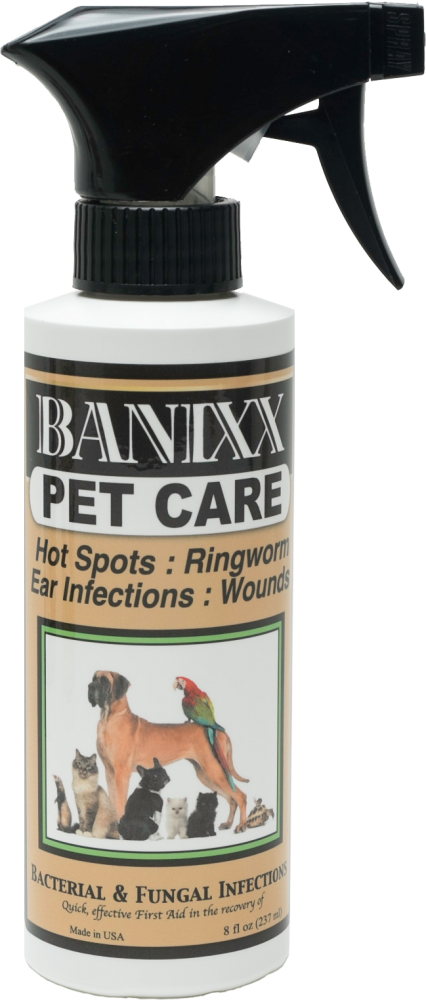

Why Does My Dog Itch? Ear Infection Advice with Suzanne Quigley
Why Does My Dog Itch? Ear Infection Advice with Suzanne Quigley
In Partnership with Banixx
By Suzanne Quigley, copywriter and animal lover
The jingling tags on his collar serve as a constant reminder.
Your poor pup, he’s at it again, scratching and biting, licking and shaking.
If your pet is plagued with itchiness, know that he’s not alone. Itching, medically known as pruritis, affects many dogs and for a variety of reasons. And all that scratching can lead to other problems such as hair loss, hot spots, and infections.
Effectively treating itching means finding its underlying cause, as itchiness is not a disease but a symptom.
Parasites, especially fleas or ticks, are a common suspect in canine itching. The bites irritate your dog, and he scratches them. Some dogs are hypersensitive to flea saliva. One bite can trigger all-over itching for these sensitive pooches.
Ridding the dog of fleas can solve the problem, so conscientious use of a flea treatment is your best bet. Many flea treatments are combined with a tick preventative, so your dog gets double protection. Treatments require consistency for best effect; miss a dose, and your dog becomes a target!
Bacterial and fungal infections of the skin can also cause itching. Scabs, discharge, and odor are frequent companions to this cause of itchiness. Subsequent hot spots and infections add to your dog’s misery.
Topical treatments like Banixx Pet Care can help his irritated skin heal quickly. Odorless Banixx has a pH level that stops infections because it stymies bacteria growth, doesn’t sting when applied, and is steroid and antibiotic-free. Additionally, Banixx is not sticky, oily or viscous.
If your vet thinks this type of infection is the culprit, she most likely will prescribe an antibiotic. But if the itching continues, there’s a good chance your dog may have an allergy.
Allergies can range from sensitivity to certain foods to allergens in the dog’s environment such as pollens, molds, dust or even grass. If your dog’s itching flares up during a particular season, his allergy struggle may be seasonal, making the cause easier to find. Dogs with year-round itching may have an environmental allergy or a food allergy. This allergy investigation requires time and patience as it involves identifying the potential irritant.
For a possible food allergy, changing his diet from what he had been eating – both meals and treats – may uncover a sensitivity if the change improves his itchiness. Food allergies are quite common in dogs due to the fact that some dog foods contain too much corn, soy or other “fillers.” Switching to a higher protein food may make a difference but be patient while your dog’s system assimilates the new food. It can take as long as a month before his allergic symptoms improve.
For environmental allergies, testing can be done by your vet and the results tell which allergens are indicated and an allergy medication can be administered.
Uncovering the root cause of your dog’s itchiness can be complicated. But your furry family member will be ever grateful that you did.
Suzanne Quigley is a freelance copywriter, former veterinary assistant, lifelong horsewoman, and dedicated pet owner. She enjoys writing for the equine and pet markets and says her horse, dog, and two cats give her all the writing inspiration that she needs. Visit her web site at: https://www.suzannequigleycopywriter.com/
Join the newsletter and never miss out on dog content again!
"*" indicates required fields
By clicking the arrow, you agree to our web Terms of Use and Privacy & Cookie Policy. Easy unsubscribe links are provided in every email.
